Sahel region^
The African Front Part 1, originally published in English with Marat Khairullin's blessing on the East Calling Substack, June 14th, 2024.
Few people suspect that, right now, Russia has opened a second front in the fight against global evil in the form of the so-called West. This is not some kind of “proxy”, but a very real, hot front, where our guys are also fighting. Perhaps this second front of ours is still inferior in intensity to the Special Military Operation. However, in terms of territorial scale, it is certainly no smaller than the Ukrainian one.
We are, of course, talking about North Africa and specifically the Sahel region. The stakes in this war are the prosperity of our country for the next hundred to two hundred years. To understand all this, we need to start a little further away.
The Sahel is a territory of Africa, where the desert northern part (primarily the Sahara) gradually turns into equatorial jungle, forming a wide strip of savannas. The Sahel includes seven main countries (from west to east) - Senegal, Mali, Burkina Faso, Niger, Chad, Sudan, and Eritrea. The distance covered is about 6 thousand kilometers (this is the distance from St. Petersburg to Khabarovsk).
If you look at the map, then the project of a trans-African transport corridor from the port of Dakar of Senegal to the Port of Sudan, with roads and railways, is just common sense.
Proposed Dakar - Port of Sudan railroad^
The countries of the Sahel have been knocking on the world's doors for many years with this idea. The implementation of such a project would simply, in fact, improve the welfare of the Sahel countries and those adjacent to them, creating a fast-growing market of about half a billion people. In the future, another transport corridor could stretch from the north to the south through Cape Town, creating conditions for the prosperity of the entire continent.
The Soviet Union planned to implement this project with the support of its powerful allies in this region - Algeria and the then prosperous Libya of Muammar Gaddafi. To this end, for example, Gaddafi had almost completed a unique project to irrigate the Sahara Desert in order to expand the savannah zone adjacent to the Sahel. But I’ll tell you about this in the following materials.
Irrigation of Libya
The important thing is that, as soon as the Soviet Union collapsed, the conditional West began to destroy integration processes in the Sahel with all its might. Actually, it was then that Islamist and other gangs appeared on the outskirts of almost all the key countries in the region. These were all proxies of the West, designed to restrain any ambitions of national governments to integrate the region. The same project of chaos was implemented everywhere- divide and exploit.
It was because of this that Gaddafi suffered when he decided, alone, with the support of Algeria, to continue to implement the project of a prosperous Sahel.
The key factor was the presence of powerful armed forces in Libya with large financial resources. He could well succeed and create a new world development center in the Sahel, which in the future would certainly compete with the West, but Gaddafi was killed, and Algeria, looking at his example, did not dare to continue these processes.
Sign marking manmade river by Muammar Gaddafi
Thus, for almost 30 years, having destroyed Libya, the conditional Western world again plunged one of the most promising regions of the world into poverty.
Here, two topics must be discussed as to why the Sahel is so important for us - why we are ready to shed blood for these countries. There is a very clear economic theory that claims that, for the normal, competitive development of a particular modern civilization, it (the civilization) must somehow control a market with a capacity of about three hundred million souls.
This is not even a theory, but pure arithmetic arising from the teachings of Adam Smith - in order, for example, to industrially produce sailor jackets, a human population of one million souls is needed.
In order not just to feed oneself but to generate innovations and create a multi-vector process, a human population of at least three hundred million souls is needed.
Our country controls the conditional market of the Eurasian Union of about 200 million souls. The seven countries of the Sahel give about 150 more. And if we take the countries adjacent to it, which, obviously, will join this process - Algeria, Egypt, Sudan, Ethiopia, Central African Republic, etc., then this is another plus of several hundred million.
An obvious development of this process will be the implementation of the North-South Africa transport corridor, which will make the capacity of this market simply gigantic, quite enough for both China and Russia.
It is no coincidence that South Africa is so actively trying to be friends with us.
It is this - the presence of a potentially vast market, which is, importantly, at the initial stage of development, that attracts us here most of all, and not just the presence of any minerals, which is the second topic.
However, let's return to the Sahel. The basis of the West's power over these countries was the deliberate degradation of the national armed forces of these countries. To this end there was the simultaneous, direct creation of separatist (primarily Islamist) gangs in the region.
Burkina Faso, with a population 22 million, had a military force of only five thousand. In Niger, with a population of 25 million, fewer than 10 thousand were part of the armed forces. Mali also has a population of 22 million and had an armed force of less than ten thousand bayonets. The official position was as follows: “The forces of the French Foreign Legion and part of the US armed forces are stationed here, so they should be responsible for security in this region. The poor countries of the Sahel do not need to maintain their own army, and they can't afford it,” so it is said.
As a result, over thirty years of such a policy, gangs of Islamists, who appeared deliberately in the border areas where these three countries touch (Mali, Niger and Burkina Faso), occupied a total of almost a third of the territory of these countries, and in numerical terms, this is more than a hundred settlements.
That is, the presence of gangs in these regions was for the West an additional insurance against possible integration processes and the construction of that same transport corridor between the West and East of Africa.
Here, by the way, we need to add one touch so that everyone understands what the West is. Today it’s the 21st century, the Internet and all that exists, and the West in every possible way suppressed any attempts to build railways in this region, up to the murder of builders and engineers. If you look at the map, railways in Africa are developed only in the outskirts - South Africa, Egypt, Algeria. All of central Africa is devoid of any developed transport infrastructure.
This was done, I repeat, deliberately - the West specifically restrained the development of the Dark Continent in this way, and they kept hundreds of millions of people in artificial poverty.
Returning to the Sahel: when the question of creating an East-West transport corridor in Africa finally arose, the first problem that stood in the way was those same gangs, and this is exactly the problem we are solving now.
In this part, I will not discuss chronologically how that happened, but I will discuss the vicissitudes of the process, and will only tell you about current events.
After a national liberation revolution recently took place in Niger, the creation of a joint armed force of the Sahel Alliance was announced, and this coincided with the formation of the African Corps and the arrival of its commander Sergei Vladimirovich Surovikin in the Sahel.
It is informally believed that he was made the direct commander of the Armed Forces of the Sahel.
Here, it must be added that Prigozhin’s rebellion and his subsequent death occurred chronologically just before these organizational events.
There are a lot of interesting facts that are too early to talk about, since I am in the process of collecting material, but in the future, I will definitely speak in detail about Wagner’s role in Africa.
Prigozhin's rebellion is a very complex event that has more than one bottom, but let's continue. The basis of the armed forces of the Sahel Alliance were primarily the fighters of Burkina Faso. There are a lot of secrets here, but one can judge with some degree of certainty that in two years of active work, about 20 battalions were created. The 19th, 12th, and 14th special battalions are considered the most combat-ready of them. As well as special anti-terrorist units: Gepard [Cheetah] and Phantom.
It is known for sure that the soldiers of the 12th battalion underwent full combat training in real conditions and participated in battles in the Zaporozhye direction, and the battalions have their own mortar and artillery units, which have also been tested on the Ukrainian front.
The Gepard and Phantom battalions completed a full training course at the Special Forces Academy of the Russian National Guard in the North Caucasus, and individual battalion fighters also participated in urban battles in the Special Military Operation.
In Mali, the third and fifth battalions are considered the most combat-ready (the names will be confirmed soon), and they returned from the Special Military Operation zone just a few months ago and are already fully participating in the battles against the Islamists.
It is interesting that, in the near future, Nigerian fighters will also begin the process of combat training in real conditions in the SMO or have even arrived to the front already, but where exactly, of course, is a military secret.
It is believed that, in total, every three months in the Sahel in the Afrika Korps camps, our specialists train about two to four battalions for the armed forces of the Sahel Alliance.
According to some data, it can be assumed that the task has been set to train about two hundred full-fledged combat battalions in the medium term.
The presence of such forces in the Sahel will radically change the geopolitical revolution here.
It is already known that detachments of the Alliance of Armed Forces in Burkina Faso and Mali operate with powerful support from MLRS and cannon artillery. The use of Uragan systems was also recorded. Apparently, in the near future, Niger will have its own missile and artillery units.
Another surprise is that the armed forces of the Sahel Alliance began to actively use front-line aviation starting from last month. Just the other day, during an assault in the Sourou province of Burkina Faso, gliding KAB 250s were used.
Remember Putin's words about the transfer of precision-guided munitions to the enemies of the West. In this case, it is clear why Macron is so furious - since it is French intelligence that is actively trying to coordinate the actions of Islamists in the north of the Sahel Alliance.
The French directly command the Islamists, including in Nigeria, and in Rivers State in southern Nigeria, direct participation of soldiers of the French Foreign Legion in military clashes with the Alliance army was recorded.
At the same time, one of the key commanders of the Islamic State of North Africa, Abu Zeidan, was eliminated in neighboring Mali.
One more important point must be mentioned here. Apparently, the supporting airfields for front-line aviation of the Sahel Armed Forces are airfields located in Libya under the control of Marshal Haftar, and in general, it turns out that a very broad coalition is operating on this front.
Already, the number of the Armed Forces of the Alliance is approaching 120 thousand, and in the next six months, apparently, it will cross the 200 thousand benchmark (including our Afrika Korps).
With its own full-fledged aviation, artillery, and armored groups. It is expected that Marshal Haftar’s Libyan National Army will soon fully join the coalition.
Now this coalition of Sahel countries is actively fighting and every day liberating more and more territories occupied by Western proxies. Let's talk about specific military operations on the ground next time. Now we can state that Russia has already opened a full-fledged second front against the West in Africa.
The African Front Part 2:
Russia in Africa challenges the hegemon:
On the eve of the great war (text version)
We continue our series of investigative journalism on the situation in Africa. The first text of the series was published a month and a half ago, and since then, events in the Sahel countries have been developing at tremendous speed. Before we get to them, let's talk a little about why Russia became interested in Africa in the first place.
The common theme in this discussion is the presence of enormous mineral and fossil resources on the continent. The second theme mentioned is the large human resources, which in the future will provide good markets. However, from my point of view, the main thing is Russia's main mission in the world - to save human civilization from the destructive influence of the West. This is the role our country has played at this stage. You can joke about this thesis, or you can ignore it, but it is the recent history of Africa that shows how the world needs a country like Russia, capable of balancing all the destructive tendencies of a united Western civilization.
The fact is that it was the peoples of Africa, more than anyone else, who suffered from the collapse of the Soviet Union. Unrestricted, predatory Western countries pounced on African states that had barely begun to rise after the brutal era of colonialism. In general, this is a separate tragic page in human history. We in Russia know about the destruction by Europeans of the civilization of the indigenous people of North America, but we know almost nothing about the destruction by the same Europeans of a whole scattering of ancient and incredibly original civilizations in Africa.
Ghana, Algeria, Ethiopia, Mali are all ancient, actively developing states, with their own culture and writing, often surpassing Europeans in development, especially in the humanitarian spheres.
In the Middle Ages, these countries developed quite peacefully; at least, there were not as many cruel and bloody wars as in Europe. All of this incredibly beautiful development of African peoples was stopped by the invasion of Europeans. The appearance of the Soviet Union in Africa partially stopped this merciless extermination. However, as soon as the Union left the arena in 1990, the West in Africa took up its favorite thing - inciting wars.
For more than 30 years of US hegemony in the world, it was Africa that paid the heaviest price in millions of human lives. These are those who died in direct conflicts, those who died from provoked famines, and those that perished in epidemics. The genocide of the Tutsi people in Rwanda is entirely the responsibility of the Americans and the French.
By the way, this tragedy has many parallels with the current confrontation between Russia and Ukraine. Ukrainians were set against Russians using exactly the same textbooks that were used to set the Hutu people against Tutsis. Before carrying out the massacre, the Hutus killed their president (Ukry, where is your Yanukovych), and in the end, when the pendulum swung in the opposite direction, the Hutus were so hated by the Tutsis that they became one of the largest refugee peoples of our time - about two million Hutu fled the country, fearing the revenge of the Tutsi (Ukrops, the ashes of the martyrs of the House of Trade Unions are knocking on our hearts), and this in a country of only 7.7 million people.
Today, the direct participation of the French intelligence services, and President Mitterrand personally in these events, is considered proven - it was on his orders that the Hutus were armed for the genocide of the Tutsi. In fact, behind this massacre, there was a struggle between French and British capital. But no matter how scary it may sound, this genocide is only an episode in a series of atrocities that the West committed on the Dark Continent. The same list includes the complete destruction of the most prosperous country in Africa - Libya. Also, they were responsible for the setbacks in the development of the second most powerful country on the continent - South Africa, which miraculously avoided collapse.
Sudan, Somalia, Congo, Mali, Burkina Faso, Niger, and almost all 60 African countries have been affected by external or internal conflicts in one way or another. The West bears special responsibility for the injections of Islamic terrorism (Al-Qaeda, Al-Shabab), which was regularly supplied with weapons and resources. These terrorists had a specific task - to prevent the peoples of Africa from establishing a peace process and beginning progressive state development.
It’s probably worth writing a separate study on this topic - the West uses these gangs to incite internal hostility. Today, a huge amount of factual material has been accumulated, which clearly indicates that the West has been purposefully investing money in creating zones of chaos throughout the continent for many years. It is clear that after thirty years of violence, the peoples of Africa were tired of endless bloodshed, so when the hope of escaping from this horror dawned, they immediately seized on it. This hope is an opening for Russia to challenge the (Western) hegemon, and also for the already established alliance of Russia, China, and, possibly, India to work together. Apparently, this Great Triangle today has every chance of becoming long-lasting, since it was created by the three most ancient civilizations of the planet, emerging from crisis.
The first significant event on the African continent, in response to these prevailing conditions, was precisely the process of liberation from French and American neocolonialism in succession of three Sahel countries - Burkina Faso, Mali, and Niger. These three countries united into a confederation - the Association of Sahel Countries. It was stated that the armies of these countries were also uniting under a single command.
The case is unprecedented for Africa, especially considering that this unified command is headed by one of the best commanders of our time - the Russian military general Surovikin.
The countries of the new confederation also announced the creation of a single bank, which, apparently, our Sberbank will help create. Now Sberbank is actively entering these countries. That is, we are talking about creating a unified payment system that unites almost 70 million people - this is how a huge friendly market is being formed before our eyes. The next swift and very painful step, for our opponents, is the creation of a single customs space, which, in addition to the Sahel countries, would include another country, Togo. That is, the Association received de facto access to the ocean.
There is one interesting point here. It is believed that the main port gateway to the Sahel countries is the port of Dakar in Senegal. The West is now especially courting this country - the President of Senegal even received a personal invitation from the President of France to the Olympics.
Here's some more anecdotal news for you - the other day, Ukraine opened an embassy in Senegal, and the ambassador immediately announced that he had arrived to counter the spread of Russian influence in Africa. In past centuries, all three Sahel countries and Senegal were part of the ancient Mali Empire, which was destroyed by the French. In short, there were prerequisites indicating that Senegal should become a key country in the Sahel Alliance in terms of access to the ocean.
Suddenly, the main port for the future trans-African corridor was chosen not to be the port of Dakar, but the port of Lome (the capital of Togo). This will be a potentially huge amount of money and investment. We’ll also discuss this later.
Now, let's return to the main problem of the new Alliance - the terrorist threat. Active Islamist gangs have established themselves in key areas of all three countries along their borders in the Niger Basin. That is, on the one hand, these are the most fertile lands, and on the other, they represent a barrier to interstate cooperation.
The key solution to this problem is to improve the national armies of the Sahel.
I wrote in a previous article that an a priori small army was artificially imposed on the Sahel states. For example, in Burkina Faso, at the time of the coup in September 2022, the army numbered only seven thousand people. And today, “the country of worthy people” (as Burkina Faso is translated) has, in fact, thirty well-trained by Russia and fully equipped battalion tactical groups - with heavy artillery, MLRS, and tanks. However, the most important factor is its combat aviation. This is precisely national aviation with its own personnel - not Russian or Libyan ones.
Over the course of the year, Russia has trained both pilots and technical engineers in our military technical universities, and from that moment on, as you understand, the issue of the existence of terrorists in the country, one might say, was resolved.
In July, the same flight contingent for the Mali aviation graduated, and now guys from Niger have arrived for training.
The situation in Mali is truly complicated - in addition to threats from terrorists, there remains a threat from the Tuareg separatists. These days, two major operations are underway jointly by the Malian army and, as they say here, “Russian allies” against the terrorist stronghold in the city of Gao and the Tuareg stronghold in the city of Kidal. At the same time, a Russian humanitarian mission was deployed in Mali to establish interethnic dialogue and reconciliation (at one time we deployed the same mission in Syria). Those Tuareg leaders who agree to lay down their arms will receive Russian guarantees and equal political rights with the rest of the inhabitants of Mali. Those that continue to support the French will be defeated by the formidable Surovikin and the Russian army.
Apparently, our country has really taken seriously the construction of the West-East trans-African transport corridor. In the West, as I already said, Togo's entry into the new customs union came as a very unpleasant surprise. Of course, it seems the surprises don't end there.
If you look at the map, the countries of Chad and Sudan separate the Sahel Association from the Gulf of Aden, and the Sudan is a particular problem, where the Americans are actively fomenting war.
Here it is interesting that our Foreign Minister Lavrov visited Chad in July, so there are high expectations that Chad can join the transport corridor, and through it, the conditional road can go not to Sudan, but to our friendly Central African Republic, and from there to our open ally in Africa - Orthodox Ethiopia.
Ethiopia, by the way, has already agreed with the unrecognized country of Somaliland (which once broke away from Somalia) on a long-term lease of the coast of the Gulf of Aden. This happened exactly after guess who came to Ethiopia? That's right, our Lavrov.
That is, in fact, while we are outplaying our "sworn partners" on this flank as well, the transport corridor project is most likely already ready.
We’ll stop here today, and in the next article we’ll definitely talk about how exactly the Americans, French and Britons are trying to provoke a big war in Africa.

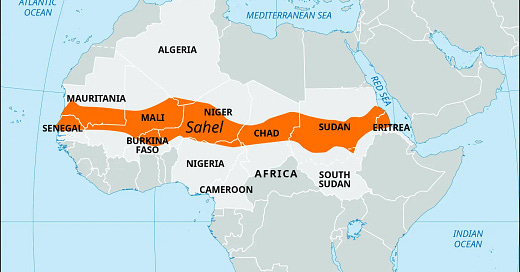






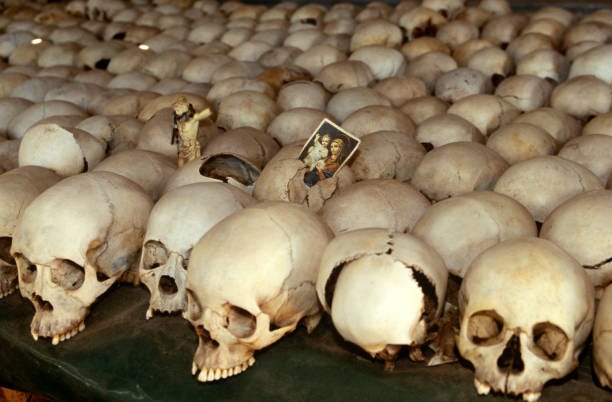
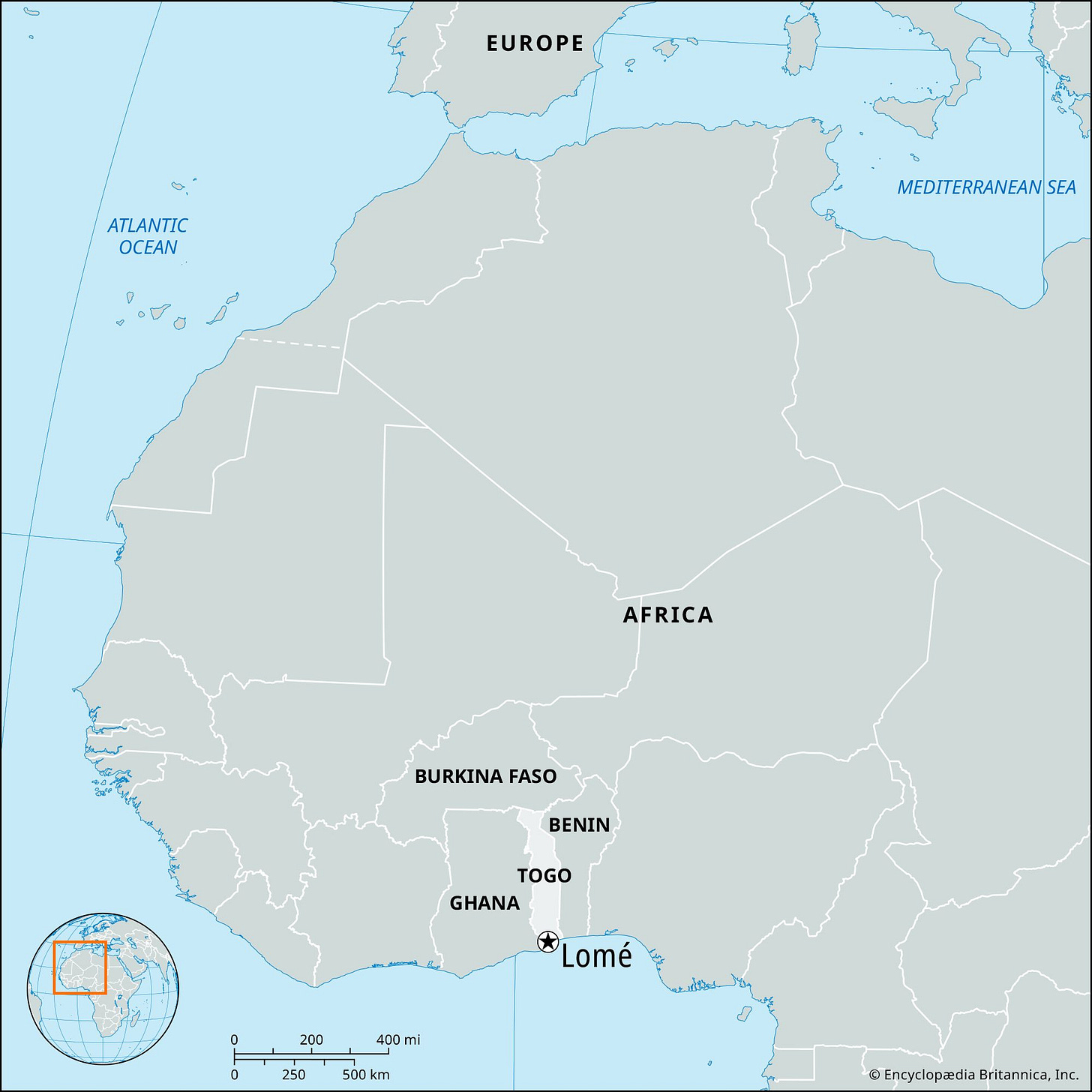

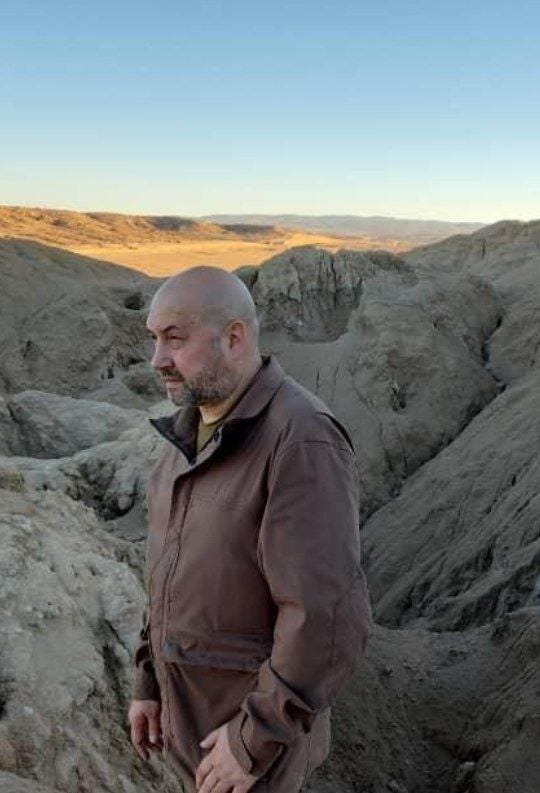
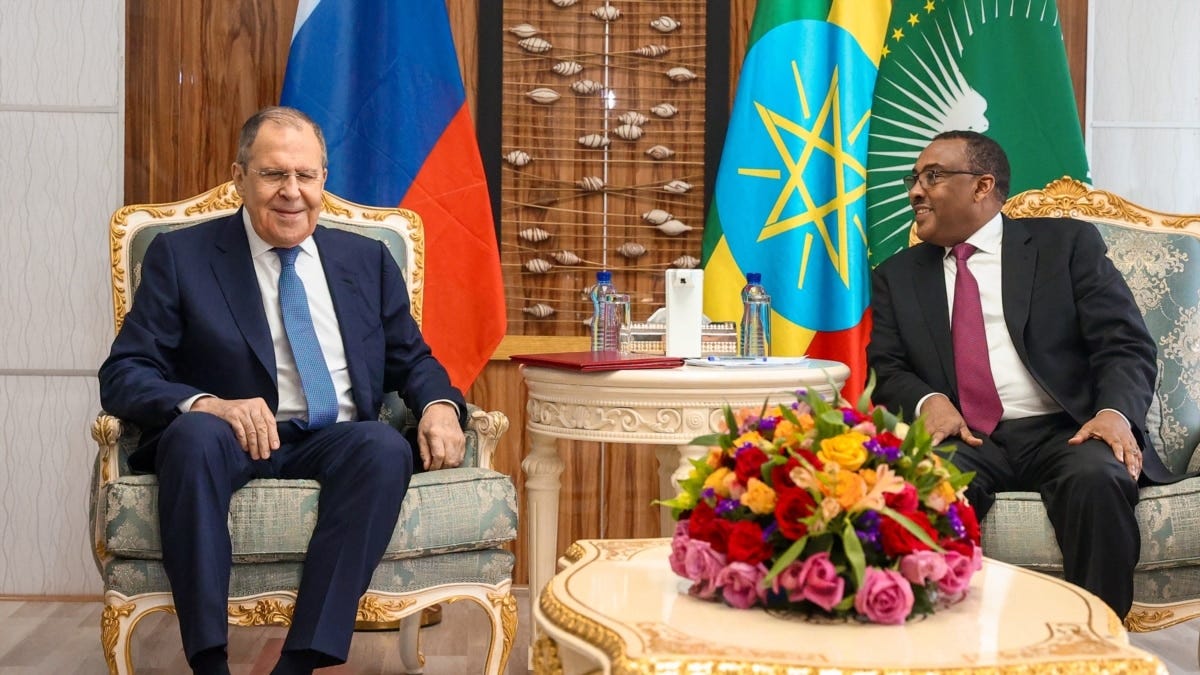
Millions of African lives have long deserved this second front. It's not just a question of the market, but also of the incredible human wealth that has been forcibly repressed. I'm extremely curious to see what they will bring to the world.
Thank you for this very informative overview. I look forward to reading more.
In its bid to wreck the world, the Arrogant West has forgotten to feed bread and circuses to the homeland.
We can't afford bread, and the whole world is taken over by the western circus.
Living in scAmerica, I can report the hatred of Russia is extreme and cost me a job merely for expressing support for Russia and not repeating the sentiment that my dad Vlad is evil, since he seems to be helping to save the world, God willing